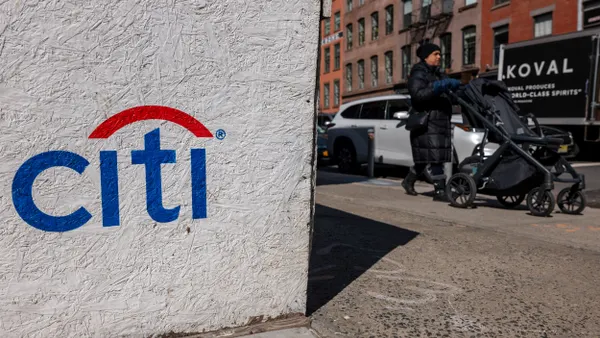Dive Brief:
- The Federal Deposit Insurance Corp. board on Thursday unanimously approved a resolution aimed at speeding up application processing.
- The measure, introduced during Thursday’s meeting by Vice Chair Travis Hill, received support from all five of the board’s members, although Consumer Financial Protection Bureau Director Rohit Chopra’s reasons for supporting the measure appeared to differ from Hill’s, the vice chair noted.
- “For certain applications, our process is taking too long,” Hill said. “And this is a problem that has worsened noticeably in the past couple years.” Between 2013 and 2021, the number of applications that awaited approval for more than 270 days was in the single digits each year. By contrast, it’s been a double-digit figure each year since 2022, he said.
Dive Insight:
The resolution requires merger or deposit insurance applications that have spent 270 days awaiting approval to automatically be put on the agenda at the FDIC board’s next meeting. And as long as an application remains outstanding, it will appear on the board’s agenda on a quarterly basis.
FDIC staff will be required to appear and brief the board, providing details on steps taken since the application was submitted, and outlining steps yet to be taken and their associated time frames, Hill said.
The resolution will give the board “more regular and rigorous oversight” of the merger review process, and, more fundamentally, encourage faster processing of merger applications, Hill said.
FDIC Chair Martin Gruenberg supported the measure, saying it would be helpful to have staff brief the board on applications that take longer than normal, to give board members an understanding as to why.
Chopra, too, applauded the resolution, although he labeled it a way to “get us to a place of a policy where we can swiftly deny applications that are facially deficient or not substantially complete.”
Chopra said he believes there’s a sense that banking agencies aren’t willing to deny applications, and “the result of this is an endless game of footsie between the agencies and the applicants.”
Proposed merger concerns tend to be communicated by FDIC staff, and rather than putting the application to the board or leadership for denial, “we go through an endless iteration to determine how we can all twist ourselves into a pretzel to get to ‘yes’ for sometimes facially deficient applications,” Chopra said.
In a number of cases, proposed merger applications are withdrawn, which affords little transparency on the process, Chopra said.
“I think this is a way that we can get applications processed and have those denials be public,” he said. “That will provide a lot of benefit to the public about how we are looking at this, where the concerns are, so that future applicants can know what should be expected of them.”
“I appreciate our agreement, but I’m not sure we agree on all the underlying objectives here,” Hill replied.
Adoption of the measure comes days after Senate Banking Committee Chair Sherrod Brown, D-OH, wrote to Gruenberg on proposed changes to the regulator’s policy statement on bank mergers. In his letter Friday, Brown called on the FDIC to quickly adopt a “strong” policy statement to make sure proposed bank mergers face sufficient scrutiny.
The agency in March approved a proposal to more closely scrutinize mergers creating banks with more than $100 billion in assets. Such deals would see greater focus on anti-money laundering and financial stability. For smaller banks, with $50 billion or more in assets, the FDIC would apply more scrutiny on the impact of a merger on local communities.
Republican lawmakers have complained it’s taking too long for bank merger transactions to get approved, and have introduced legislation that seeks to curtail the amount of time banks wait for a regulatory response on merger applications.
On Thursday, the FDIC board also approved a final rule that aims to bolster resolution planning for banks with $100 billion or more in assets, to reduce the likelihood of hurried weekend sales if a bank fails. The need for stronger plans is “compelling,” considering last year’s bank failures, Gruenberg said. The board voted 3-2, with Hill and Director Jonathan McKernan, both Republicans, voting no.














